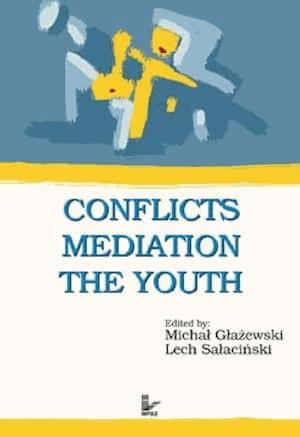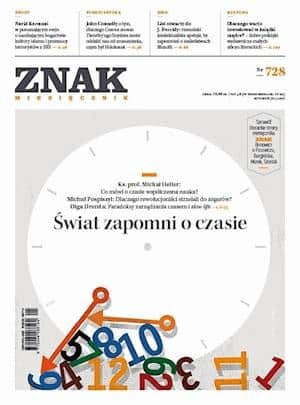
Conflicts – Mediation – The Youth
- Wydawca:
- Impuls Oficyna Wydawnicza
- Kategoria:
- Nauka i nowe technologie
- Język:
- polski
- ISBN:
- 83-7308-540-8
- Rok wydania:
- 2005
- Słowa kluczowe:
- carried
- conflicts
- mediation
- może
- napisana
- participating
- result
- socrates
- value
- vinci
- which
- wspólnym
- youth
- mobi
- kindle
- azw3
- epub
Jeżeli nie widzisz powyżej porównywarki cenowej, oznacza to, że nie posiadamy informacji gdzie można zakupić tę publikację. Znalazłeś błąd w serwisie? Skontaktuj się z nami i przekaż swoje uwagi (zakładka kontakt).
Kilka słów o książce pt. “Conflicts – Mediation – The Youth”
Prezentowana książka jest publikacją, na którą otrzymano grant z międzynarodowych programów Socrates, Leonardo da Vinci, Młodzież. Książka napisana jest w języku angielskim. Podejmuje ona między innymi problematykę szkoły jako miejsca bitwy lub pokojowej współpracy, mediacji w odniesieniu do szkolnictwa w północnej Irlandii, agresji w polskich szkołach i sposobach jej zapobiegania, programów zapobiegania agresji na poziomie edukacji wczesnoszkolnej, programów mediacyjnych w szkołach niemieckich, pracy młodzieży w szkołach, postmodernistycznej etyki nadziei i strachu.
Praca składa się z trzech części i została napisana przez międzynarodowe grono specjalistów. Okazuje się, że współpraca międzynarodowa jest możliwa, a na dodatek może przyczyniać się do rozwoju współpracy miedzy poszczególnymi krajami czy regionami. Książka pokazuje jak wartościowa może być współpraca nad wspólnym międzynarodowym projektem badawczym.
At present in Poland as well as in many other European countries numerous projects financed from the means of the European Union are carried out. All this projects have one idea in common: supporting all initiatives leading to social development and international cooperation within framework of the uniting Europe.Each of the project should result in measurable and practical benefits. Yet in the opinion of many people this is not always the case. It may happen that particular projects result in bulky volumes of studies in which it is difficult to identify any practical benefits.
This book proves that the international projects carried out are not a mere waste of time and money, but in fact can practically contribute to the development of particular countries anf regions.
The authors of particular chapters of the book are directly involved in the project carried out within the framework of three European programmes: Socrates, Leonardo da Vinci, The Youth. Their ideas, concepts, conclussions or reports on actual actions undertaken constitute the true value of this study and confirm the practical benefits of this kind of activity.
This book is an example of how valuable practical activity within the framework of international project can be. Each of the countries participating in the project has to deal with their own specific social and educational problems, yet the actions undertaken do not vary significantly. Subsequent parts of this book will show the readers how efficient these actions are.
Polecane książki
Poniżej prezentujemy fragment książki autorstwa Michał Głażewski
CONFLICTS – MEDIATION – THE YOUTH
EDITED BY:michał głażewski
lech sałacinski
IMPULS
Oficyna Wydawnicza „Impuls” Kraków 2005
© Copyright by Oficyna Wydawnicza „Impuls”, Kraków 2005
Recenzent:prof. zw. dr hab. Krystyna Ferenz
Projekt okładki:Ewa Tatiana Beniak
Publikacja sfinansowana ze źródeł programów SOCRATES, LEONARDO DA VINCI I MŁODZIEŻ
ISBN 83-7308-540-8
Oficyna Wydawnicza „Impuls” 30-619 Kraków, ul. Turniejowa 59/5 tel. (0-12) 422-41-80, fax: (0-12) 422-59-47
www.impulsoficyna.com.pl, e-mail:impuls@impulsoficyna.com.pl Wydanie I, Kraków 2005
Konwersja do formatu EPUB: Virtualo Sp. z o.o.
editorial
LECH SAŁACIŃSKI Poland
ON BENEFITS OF PRACTICAL ACTIONS OR THE INTRODUCTION TO AN INTERNATIONAL
PROJECT
At present in Poland as well as in many other European countries numerous projects financed from the means of the European Union are carried out. All these projects, despite their diversity in terms of contents and structure, have one idea in common: supporting all initiatives leading to social development and international cooperation within the framework of the uniting Europe. Each of the projects should result in measurable and practical benefits. Yet in the opinion of many people this is not always the case. It may happen that particular projects result in bulky volumes of studies in which it is difficult to identify any practical benefits.
This book, and I hope that most readers will share my opinion in this respect, proves that the international projects carried out are not a mere waste of time and money, but in fact can practically contribute to the development of particular countries and regions. The authors of particular chapters of the book are directly involved in the project carried out within the framework of three European programmes:Socrates, Leonardo da VinciandThe Youth.Their ideas, concepts, conclusions or reports on actual actions undertaken constitute the true value of this study and confirm the practical benefits of this kind of activity.
The main topic of the project focused on the issue of social conflicts and shaping social, democratic and civic attitudes in various circles. One of the major forms of the project consisted in organising workshops for pedagogues from selected European countries which would provide them with an opportunity to learn more about the specific character and conditioning of social conflicts occurring in particular areas and their consequences for education. Apart from that the workshops were meant to offer an opportunity to practice concrete abilities vital for coping with conflict situations arising in schools and other educational institutions. The following title summarizes the primary aim and the major task underlying the project: „Shaping Democratic and Civic Attitudes Through a Systematic Training in Resolving Conflicts – an International Comparative Study”.
The project was initiated by the employees of the Brandenburg Regional Office for Foreigners, Youth Work and School (Regionale Arbeitsstellen für Ausländerfragen, Jugendarbeit und Schule e. V. – RAA Brandenburg). RAA Brandenburg is a German non-governmental organization whose scope of activity covers the land of Brandenburg. The main statutory aims of the organisation include prevention of racism and hostility towards foreigners as well violence in educational institutions (both in schools and out of school). The organization employs, on various time and contractual principles, more than 40 pedagogues and social workers, which certainly should constitute a pattern to be followed in the Polish context.
The employees implement and supervise various projects targeted at children, teenagers and adults. Many of these projects are specifically aimed at teachers. Work with immigrants, migrants and other ‚minority’ groups also constitute some of the priorities of the programme. Workers’ salaries as well as the projects undertaken by RAA Brandenburg are fully financed from the European means, the budget of Brandenburg or other means acquired from various foundations.
The project described involved not only RAA Brandenburg but also twin organizations in France: Academie Francaise, Délégation Académiqe aux Relations Internationales et à la coopération in Rennes, Northern Ireland: North Eastern Education and Library Board from Antrim and Poland: Zielona Góra Educational Association „Civilitas” from Zielona Góra, Teacher Training Centre from Zielona Góra and „Bona Fides” „Kultura Dialogu”, „Horyzont”, „Meditor” from Silesia. All these organizations are actively involved in education and are experienced in terms of work with schools, children and teenagers in the area of conflict and violence prevention. A closer examination of the scope of activity of these organizations shows that in their routine, daily work many interesting instances of actions practically contributing to the democratization of school life as well as to the raise of the quality of social life in general can be found.
According to its assumptions the project was aimed directly at two groups:
– teachers, pedagogues and social workers employed in schools of various types, willing to start work with teenagers, parents and other teachers. The aim was to acquire interpersonal competences and the ability to resolve all conflict situations peacefully and encourage democratic attitudes in everyday life;
– young people in problem situations (e.g. teenagers from pathological backgrounds, handicapped people, juvenile immigrants or teenagers of the rightist political orientation).
The actual tasks underlying the project were scheduled for two years and covered the following scope of activity:
– five 10-day international workshops during which the participants had an opportunity to: familiarise themselves with the specific character of social conflicts in particular countries and resulting educational problems, learn about the methods of coping with such problems in normal conditions of routine work and life, exchange experience as far as mediation and negotiation in conflict situations are concerned and acquire new pedagogical skills during practical activities;
– publication of a book promoting the idea of the project, describing the achievements of the participants, their practical experience, conclusions from the tasks undertaken or theoretical reflections connected with the problems of teenagers, their aggressive behaviour and conflicts between young people;
– training sessions were organised in host countries and regions and as a result the participants were able to work out new methods of work with children, teenagers, parents, teachers as well as prepare materials which could be used while working with young people;
– direct work with young people in selected schools and educational institutions in particular regions.
The participants of the project found subsequent study trips particularly informative, especially from the cognitive point of view, since they were offered an opportunity to take a closer look at problems typical for particular countries or regions. It turns out that what poses a specific problem in one area or country is no loner a threat somewhere else. It was either dealt with successfully in the past, it is efficiently prevented or it becomes insignificant from the general point of view.
For instance while visiting Northern Ireland, project participants had an opportunity to gain an in-depth knowledge of the essence and origins of the existing religious conflicts. These conflicts, so typical of this region, do occur, yet are not so significant in other countries. Nevertheless, getting a better insight into the essence of the problems as well their significance for educational practice was of particular interest. Project participants may have been mislead by a deceptive impression that nobody remembers what it is that the people in Northern Ireland fight for and where all the hatred and hostility to one’s neighbour, colleague or a friend comes from. Polish participants stressed, that the fact that the mutual hostility between the Protestants and Catholics is spread to all areas of social life involving children, teenagers and schools is particularly surprising.
Students from the earliest year of their age take part in street fighting, assaults on the family homes of infidels or other acts of directed violence. Actions initiated by the students themselves, often on the school premises, are not infrequent.
Poles were also amazed by the idea of integration schools in the Northern Ireland. Integration programmes carried out in these schools are completely different from the ideas implemented in integration schools in Poland. In Polish schools the main idea of integration applies to the coexistence of healthy and handicapped people in the school environment as well as in the conditions of everyday life. In contrast in Northern Ireland the concept of integration applies first of all to a peaceful coexistence and cooperation between students of different religions or different world view.
It turns out then, that the problem of conflicts between the Catholics and the Protestants transferred to schools and to the whole educational area constitutes a particular educational problem for Irish pedagogues. That is why they seem to attach great significance to their competence in carrying out mediations and negotiations. These abilities may occur to be of crucial importance. The Irish teacher, or a pedagogue, in his/her daily work, has to react almost rapidly, sometimes even on the street, to various acts of mutual aggression among students.
Thus the solutions and educational programmes whose aim is to prevent the occurrence of conflicts among children and teenagers worked out in the Northern Ireland are worthy of admiration. They are often universal in character and can be successfully applied in various educational situations for the purpose of solving different problems, provided appropriate facilities and financial means are guaranteed.
The educational idea of so called ‚outdoor activities’ implemented in Northern Ireland, as a method of integrating teenagers and an educational tool used for preparing them for peaceful coexistence occurred to be particularly interesting. This idea can be loosely compared to the Polish idea of so called ‚green schools’ or ‚open education’. Yet it has to clearly stressed that the concept of Polish ‚green schools’ is barely a novice project and a gross simplification compared to what is planned and implemented in Northern Ireland.
To give another example, our French colleagues in Brettany face a completely different problem. Here mediation as an educational tool occurs to be useful in solving conflicts arising between French teenagers and young immigrants i.e., young people from other countries whose influx is increasing. Typical conflicts arise here and their resolution is expected to be aided by pedagogues employed in the complex out-of-school structure of educational institutions. This broadly discussed socio-educational problem described by the French as so called ‚Breton paradox’ was of particular interest to project participants especially in the context of the Polish experience related to the evaluation of the quality of education in Polish schools.
The ‚Breton paradox’ consists in the existence of a significant relationship between the increasing teaching results and high achievements of Breton students on the one hand and the increase in the number of suicide among children and teenagers on the other. This relationship typical for the countries of different than European culture1 and mentality turns out not to be completely alien to Europeans. The causes of the problem seem to be rooted in social pressure, excessive competition or almost obsessive pursuit of success in professional life. Such social attitudes are obviously combined with students’ orientations as well as their parents’ expectations as far students’ school performance is concerned. The conviction that only the best can attend good schools, study at the best universities or find later on satisfying jobs and that only competition and rivalry lead to success seems to prevail here. If in such situation education is dominated by strategies promoting success by all means2 the results may be opposite to what is expected.
Another reason for which the problem of suicide among school students has become crucial for Bretons is the fact that not infrequently educational atmosphere in schools, the hierarchy of values favoured or even concrete actions of teachers who lack basic educational skills seem to amplify the atmosphere of rivalry among students. The French example shows that competition in education and rivalry at school may often lead to the situation whereby students lose touch with the objective reality and suffer from a syndrome of helplessness when faced with the simplest problems of every day life. Such helplessness leads in consequence to the occurrence of various conflicts and at the further stage it may trigger aggressive behaviour. That is why the idea of the project was particularly interesting and useful for the French colleagues. They noticed the opportunity to gain new pedagogical insights and improve their methods of work.
Further meetings also resulted in interesting observations, reflections and experiences among project participants. Two sessions were organized in Poland, the first in Zielona Góra and the second in Katowice. General impressions of our colleagues from Northern Ireland, France and Germany are particularly interesting here. Most of them visited Poland for the first time and that is why they found direct contact with everyday life, culture or education in Poland particularly exciting. This showed the enormous value of such programmes and international projects. Their evaluation of the image of Poland and Poles was surprisingly positive. They stressed that their image of Poland before the visit was based almost exclusively on the picture created by mass media or exotic tales told by their friends and eventually it fell completely apart. Being astonished by the ‚normality’ of life in Poland they re-valued their stereotypical opinions of the country where the proverbial Kowalski or Nowak live.
Their observations concerning Polish solutions in education were also of interest. Thus Poles were particularly keen to find out whether they should still learn from other countries or whether the models and methods elaborated in Poland could function as patterns for others. In general the opinions expressed could make the Polish group feel moderately optimistic. Considering the poor financing of the Polish education it turns out that in the opinion of the foreign participants of the project, the problems Poles face are universal in character. The difference lies in particular ways in which such problems are addressed.
The French, German and Northern Irish particularly appreciated the role and the function the school pedagogue in Poland. It turns out that such position does not exist in German, Northern Irish or French schools. Considering the fact that school pedagogues are specially trained and have wide, background knowledge in psychology and pedagogy, this kind of solution could be classified as almost exemplar and worth popularizing in other countries. In particular the specific abilities of pedagogues as mediators were stressed as on the everyday basis they are confronted with various conflicts in and out of school. The tempo of the transformation of the Polish education was especially appreciated. The Polish educational system as well as all educational institutions were perceived as open and modern. Unfortunately it was observed that although Poland follows most contemporary tendencies in education, negative phenomena, pathology and deviation, both old and newly developing, are also present.
The subsequent part of the project focused on educational problems in Germany. Thus the last meeting was organised in Brandenburg. Problems connected with violence among teenagers and social conflicts arising from the growing influx of immigrants from various countries occur to be most transparent here.
These conflicts are partly connected with the reviving radical, rightist movement whose activists tend to address their propaganda to school students and hence trigger acts of violence against anything what is alien and not German. The German group consisted of teachers, pedagogues and social workers employed in Brandenburg. It is there that the number of conflicts and the scope of violence directed at foreigners are significantly higher compared to other regions in Germany. That is why our German colleagues attach so much importance to educational work with teenagers in this field. Branderburg is a leading region in Germany as far as various national and international projects connected with the prevention of violence and spread of tolerance are concerned. The initiative and involvement of various people in numerous projects directed at teenagers and students of various schools can only be admired.
Thus if we look from a global perspective on the idea of this one as well as other international projects and their practical benefits it can certainly be stated that they have a deep meaning. They lead to a better mutual understanding and hence help to break the stereotypes frequently still rooted in the awareness of many Europeans.
Joint work always results in a valuable exchange of experience as well as in learning about new ways of solving specific problems. Sometimes the value of the project may lie only in gaining a different – external perspective on one’s problems. While carrying out joint projects one becomes convinced that problems bothering one group are nor exclusively specific for them. Many ‚national’, problems turn out to be universal in character and are not nationally or geographically conditioned. The fact that symptoms of loneliness do not occur in the awareness of people who attempt to do something seems to constitute another positive aspect. The very feeling that I am not the only person facing a given problem may be motivating to undertake further practical actions.
This book is an example of how valuable practical activity within the framework of international project can be. Each of the countries participating in the project has to deal with their own specific social and educational problems, yet the actions undertaken do not vary significantly. Subsequent parts of this book will show the readers how efficient these actions are.
REFERENCES
McO P.,Piekło dzieci,„Forum” 1991, No. 7.
Rabczuk W.,Edukacyjne problemy w Japonii,„Edukacja i Dialog” 1993, No. 3. Salecki J. A.,Wielki wyścig,„Rodzina i Szkoła” 1987, No. 3. Wołosik A.,Jak nie zwariować w japońskiej szkole,„Społeczeństwo Otwarte” 1993, No. 5.
1 More in: J. A. Salecki,Wielki wyścig,„Rodzina i Szkoła” 1987, No. 3; W. Rabczuk,Edukacyjne problemy w Japonii,„Edukacja i Dialog” 1993, No. 3; P. McO,Piekło dzieci,„Forum” 1991, No. 7; A. Wołosik,Jak nie zwariować w japońskiej szkole,„Społeczeństwo Otwarte” 1993, No. 5 and other.
part i THEORETICAL CONTEXT OF CONFLICT AND MEDIATION
LECH SAŁACIŃSKI Poland
SCHOOL AS A BATTLEFIELD OR A PLACE OF PEACEFUL COOPERATION
open confrontation or developmental conflict
Attention. We shall either reach consensus now or we shall break up for ever. Every thought which desires to slip out and hide, every wandering feeling should be called to order and put in an orderly line by means of the effort of will.
Janusz Korczak1
If we look at the school as a society of people of different interests, expectations, needs and abilities who meet at a particular place and in a particular time in order to accomplish a jointly developed programme of development, it could be assumed that the quality of interpersonal relationships between the basic subjects forming the school constitutes the basis of their success. Unfortunately quite frequently when we think of the formula of the teacher – student relationship we can see the asymmetrical picture of this relation. The relation is based on the principles of domination and submissiveness, superiority and subordination that can be translated as power and weakness. In the case of such relation one of the parties of the interpersonal relationship attempts to accomplish in a violent way their own personal programme regardless of the will, needs and expectations of the other party. What happens then is, to use the accurate metaphor suggested by Witold Komar2, is an outbreak of an educational ‚war’ and open confrontation of forces.
According to W. Komar the area of war in education is invariably located on continuum between autocracy and liberalism3. Thus on the one hand we deal with a permanent desire for, not infrequently camouflaged, domination, on the other with a desperate struggle for freedom as well as defence against enslavery. This struggle may assume various constellations depending on which of the subjects of education (teacher, student, school headmaster, and parent) is here a sovereign and which one is a vassal4. According to Thomas Gordon „Almost all schools are organized hierarchically: teachers are subordinates of school headmasters who in turn are subordinated to school inspectors and education officers”5. If we tried to follow Gordon’s idea we could suggest some kind of generalisation at this point which seems to be adequate in relation to any school in any country and say that „it remains unclear why for some unfortunate reasons most schools have a structure resembling a former military organization”6 dominated by the following principles: „unity of command, specified scope of control, hierarchy of authority, implementation of directives coming from above, the need to respect the authority (obedience) penalties for violating the rules etc.”7.
This comparison of the strategy of the functioning of schools and military organizations seems to be accurate in the context of permanent conflicts between different school subjects. School is often perceived as the place of various conflicts and struggle between different groups of people who efficiently impoverish one another using violence and hostility hidden under the mask of love and respect to other people and under the banner of good as an absolute value. In the struggle, friends or simply partners who are on the common path to the development or peaceful resolution of associated problems and conflicts, are simply not noticed. Partners or comrades are perceived as competitors and rivals. The rivalry excludes cooperation. Thus rivals who are obstacles on the way to one’s personal success are perceived as enemies who need to be ruthlessly destroyed. All efforts and activity are aimed at impoverishing the opponent and not at resolving the problem underlying a particular conflict.
If we look at the essence of interpersonal conflicts from a more general perspective we can notice they are characterised by varied structure and meaning. The very word conflict7 comes from Latin and in the simplest translation means antagonism, contradiction, dispute, argument or collision. It is also sometimes used with the meaning of discord, tackle or struggle. At the level of interpersonal relationships, conflicts are identified most frequently with a struggle or a clash between two or among more people who cannot reach agreement or a compromise.
Thus people usually fear conflicts. They perceive them as a form of struggle or even war. At war there are always winners and the defeated. Wars also allow breaking important rules which oblige at the time of peace. All methods are permissible in order to destroy the enemy. Hence if in case of conflicts, we perceive our partners as enemies – we aim at destroying them and not solving problems which cause conflicts. The general conviction is that only the elimination of the enemy is the most appropriate way of solving problems. Thus all activity is triggered by the idea of the enemy and not by the essence of the problem.
According to Thomas Gordon there are two major reasons underlying interpersonal conflicts:
1) when the behaviour of one of the persons involved in the conflict prevents the other person from satisfying their needs;
2) when between people there occurs incompatibility between the image of the world and one’s individual system of values8.
These causes, although most probably not the only ones, constitute according to Gordon the basis of major conflicts between the teacher and the student at school. At the same time however we have to realise that conflicts at school are unavoidable just like „rain and taxes. They not only have to occur bur they may occur quite frequently”9.
Thus it is difficult to imagine the development of the world without conflicts. It is the attempt to reconcile conflicting interests, needs or ideas that constitutes the basis of new concepts and solutions. It turns out that there is a great potential behind conflicts. When people are afraid of conflicts or treat them like wars, they lose the ability to learn more about the other party and express their own needs and interests. The only opportunity to establish a satisfactory contact with another person is lost. Only brave attempts to solve difficult problems build true security and trust. Thus the potential hidden in each particular conflict is worth discovering. As life shows, not conflicts lead to misunderstandings or struggle but the way in which they are resolved10.
Thus it is crucial to make people aware that conflicts are unavoidable in all environments. Schools are not exceptional in this respect. Usually conflicts at school arise between students and teachers, but not only. Sometimes conflicts are trivial, sometimes however, they are serious in nature and they may disrupt the whole process of communication between the teacher and the student leading to the destruction of the educational relationship. Most frequently, school or class conflicts arise from the disparity of mutual expectations of teachers and students.
Teachers





